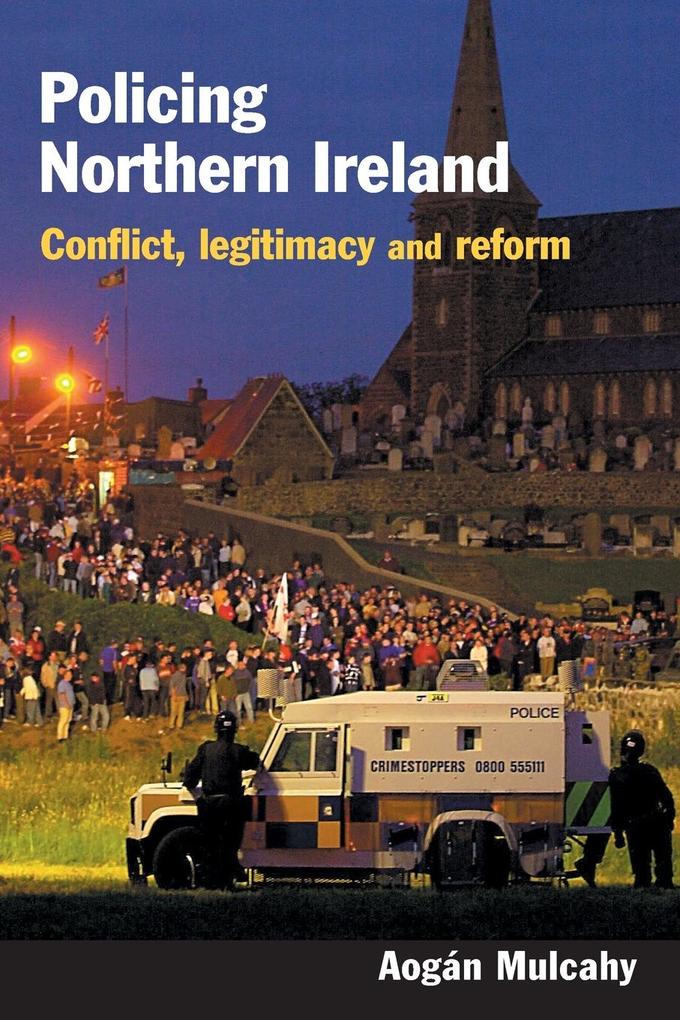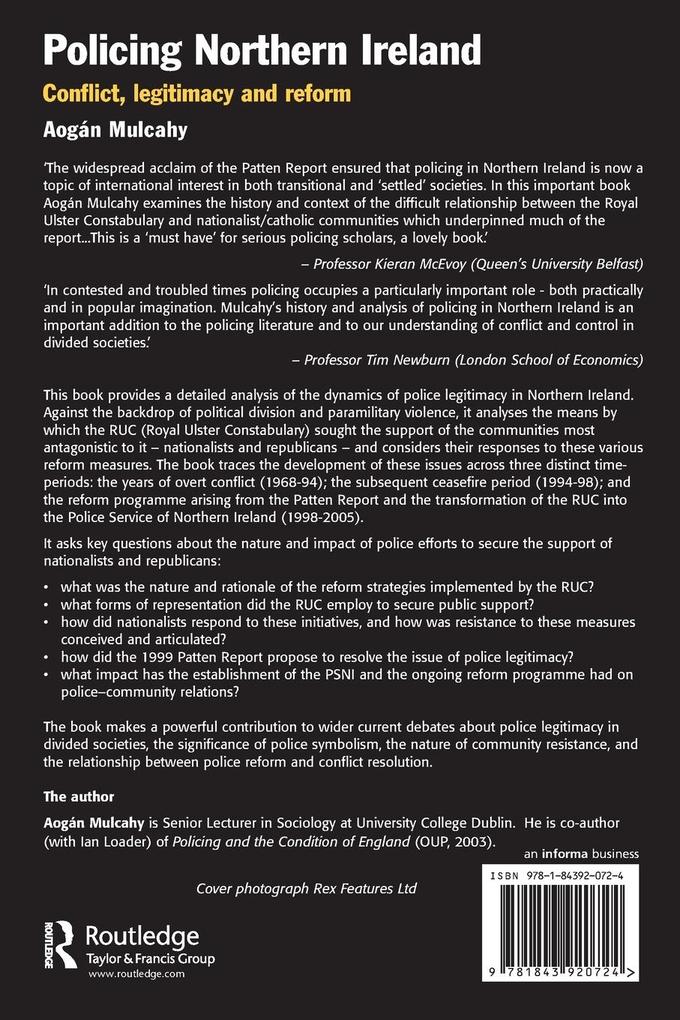
Zustellung: Mo, 26.05. - Fr, 30.05.
Versand in 6 Tagen
VersandkostenfreiBestellen & in Filiale abholen:
This book provides an account and analysis of policing in Northern Ireland, following the RUC (Royal Ulster Constabulary) from the start of 'the troubles' in the 1960s up to 1999. It focuses on three key aspects of the police legitimation process: reform measures which are implemented to redress a legitimacy crisis; representational strategies which are invoked to offer positive images of policing; and public responses to these various strategies. The book also makes a powerful contribution to wider current debates about police legitimacy, police-community relations, community resistance, and conflict resolution.
Inhaltsverzeichnis
Part 1: Introduction and Context 1. Introduction: the 'Policing Question' in Northern Ireland 2. The police legitimation process: reform, representation, response Part 2: Policing the Conflict 3. Rehabilitation and normalisation: reform and professionalisation of the RUC 4. Policing history: the organised memory of the RUC 5. Simultaneous surfeit and dearth: oppositional discourses on the RUC Part 3: Policing the Peace 6. Police reform as peace dividend: debating the future of the RUC 7. Visions of normality: peace and the reconstruction of policing in Northern Ireland 8. Living memory: past and present in police reform debates Part 4: Police Reform and Political Transition 9. A new beginning? The Patten Report on Policing in Northern Ireland 10. A new force? The Police Service of Northern Ireland Part 5: Conclusions Conclusions: policing, legitimacy and social conflict
Produktdetails
Erscheinungsdatum
01. November 2005
Sprache
englisch
Seitenanzahl
242
Autor/Autorin
Aogan Mulcahy
Verlag/Hersteller
Produktart
kartoniert
Gewicht
374 g
Größe (L/B/H)
234/156/13 mm
ISBN
9781843920724
Entdecken Sie mehr
Bewertungen
0 Bewertungen
Es wurden noch keine Bewertungen abgegeben. Schreiben Sie die erste Bewertung zu "Policing Northern Ireland" und helfen Sie damit anderen bei der Kaufentscheidung.











